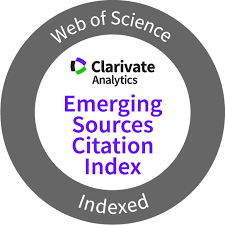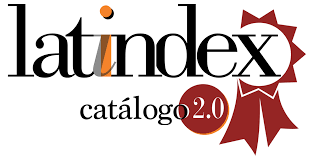The weight of strategic research in the curricula of unofficial master’s degrees specialized in Public Relations and Communication Management in Spain
DOI:
https://doi.org/10.5783/revrrpp.v12i24.773Keywords:
Research subjects, Corporate communication, European Higher Education Area-EHEA, , Unofficial masters’ degrees, Spain, Public RelationsAbstract
The managerial function of communication and PR requires the use of a scientific method for decision-making that makes it possible to correctly define the starting problem of strategic programming through an effective diagnosis, establish the objective to be achieved and, subsequently, evaluate correctly the success achieved, taking into account that the final strategic objective is to establish relationships of trust with the publics.
In this article we seek to identify the contents that form competencies and research capacities in strategic planning within the study plans of the own (unofficial) master's degrees directly linked to the function of communication management, offered in Spain during the 2019-2020, to determine if the graduates have been prepared, as future managers, to investigate properly.
Matilla (2018) proposes a series of information and research techniques and methods -basic and applied- that should be worked on in the first stage of the strategic planning process and that will serve as a guide for the contents that should be worked on at the training level.
Through content analysis, a total of 38 unofficial master's degrees were identified that met the first search requirements in the 2019-2020 academic year, of which, after carefully reading their subjects, competencies and professional opportunities, it was seen that only 13 were directly linked to the communication management function, both from an integrated department of an organization, as well as from agencies and consultancies.
The final sample unit showed that the word “research” literally appeared in 7 subject titles of 6 different master's degrees. Likewise, the descriptions or contents of another 26 subjects included at least one concept linked to the initial stage of research, such as “audit”, “diagnosis”, “analysis” (psychosocial, of publics, of data, of insight, executive...), “measurement”, “monitoring”, “metrics”, “evaluation”, “audience map”, “information search”, “issues management”, “research of futures”, “interpretation of results” or “social trends”. A third of the Spanish master’s degrees directly linked to the function of communication management do not offer any type of training in strategic research, despite its importance at a professional level, and only half of them offer at least one specialized subject in research.
There is no master’s degree that literally includes all the necessary contents identified by Matilla (2018) to correctly carry out the first stage of research, although there are some universities that show a high interest in training professionals capable of empirical research. Reliable proof of this interest is the Carlos III University of Madrid, which offers more than 50% of its ECTS with some mention of research techniques, methods or typologies.
In short, it can be seen that depending on the postgraduate training in question, future communication and PR professionals will be trained -or not- to conduct scientific research, so that a third of postgraduates will not have received specific training in strategic research and will not be able to acquire the research skills necessary to adequately exercise the management function.
Downloads
References
ÁLVAREZ-NOBELL, A., CASTILLO-ESPARCIA, A. y RUIZ-MORA, I. (2022). Estudios de grado, máster y doctorado en Comunicación en España tras los 50 años de su instauración. Profesional de la información, 31(1), e310109. https://doi.org/10.3145/epi.2022.ene.09
ANDREU-ABELA, J. (2000). Las técnicas de análisis de contenido: una revisión actualizada. Sevilla: Fundación Centro Estudios.
BALADRÓN-PAZOS, A., CORREYERO-RUIZ, B. y MANCHADO-PÉREZ, B. (2022). La formación universitaria sobre Publicidad y Relaciones Públicas en España tras 50 años de historia: qué y cómo enseñamos. Profesional de la información, 31(1), e310113. https://doi.org/10.3145/epi.2022.ene.13
BROOM, G.M. y DOZIER, D. (1990). Using Research in Public Relations. Application for Program Management. Englewood Cliffs, N.J.: Prentice Hall.
CARRETÓN-BALLESTER, C. y LORENZO-SOLA, F. (2020). Redefiniendo el perfil del profesional de relaciones públicas. Revista Internacional de Relaciones Públicas, 19(10), 7-28. http://dx.doi.org/10.5783/RIRP-19-2020-02-07-28
CASTILLO-ESPARCIA, A. y VILLABONA-BELTRÁN, D. (2018). Evaluación para demostrar la efectividad en comunicación y relaciones públicas. Una mirada a las prácticas profesionales desde los Communication Monitor. Communication Papers, 7(15), 137-153.http://dx.doi.org/10.33115/udg_bib/cp.v7i15.22188
CLUA-INFANTE, A. (2013). Las asignaturas de metodología de la investigación en los grados de comunicación, periodismo y publicidad y relaciones públicas de las universidades españolas. Análisis crítico frente a los retos del EEES. En: M. Vicente-Mariño; T. González-Hortigüela; y M. Pacheco-Rueda (coords.). Actas del II Congreso Nacional sobre Metodología de la Investigación en Comunicación y del Simposio Internacional sobre Política Científica en Comunicación (Segovia, 2‐3 de mayo de 2013). Investigar la comunicación hoy: revisión de políticas científicas y aportaciones metodológicas (pp. 103-104). Segovia: Facultad de Ciencias Sociales, Jurídicas y de la Comunicación (UVa-Segovia). http://uvadoc.uva.es/handle/10324/2981
COMPTE-PUJOL, M., MATILLA, K. y CUENCA-FONTBONA, J. (2019a). Un análisis de los másteres propios especializados en Relaciones Públicas y en Comunicación Corporativa en España en el curso académico 2018-2019. Tripodos, 45, Monográfico “Relaciones Públicas Avanzadas: Confianza”, 13-31. https://doi.org/10.51698/tripodos.2019.45p31-47
COMPTE-PUJOL, M., MATILLA, K. y MARCA-FRANCÉS, G. (2019b). La formación universitaria en comunicación de la RSC: análisis de las titulaciones especializadas en RSC en España (2017-18). REDU: Revista de Docencia Universitaria, 17(2), 177-196. https://doi.org/10.4995/redu.2019.10470
COMPTE-PUJOL, M. y CUENCA-FONTBONA, J. (2022). Digital communication training for communication managers. An analysis of the unofficial master’s degrees in Spain during the 2019-2020 academic year. En: S. Tejedor y C. Pulido. Rethinking digital native communicators training. Barcelona: Thomson Reuters Aranzadi, 61-76.
CUENCA-FONTBONA, J. (2018). Cómo hacer un plan estratégico de comunicación. Vol. III: La investigación estratégica preliminar. Barcelona: UOC, Colección Dircom.
CUENCA-FONTBONA, J., COMPTE-PUJOL, M., MATILLA, K. y HERNÁNDEZ, S. (2018). Un análisis de los masters universitarios españoles especializados en Relaciones Públicas y Comunicación Corporativa desde la perspectiva de las Relaciones Públicas, Obra Digital, 13, septiembre 2017-enero 2018, 37-57. https://doi.org/10.25029/od.2017.156.13
CUENCA-FONTBONA, J., MATILLA, K. y COMPTE-PUJOL, M. (2019). Análisis bibliométrico de la producción científica de las relaciones públicas a través de las tesis doctorales (2016-2017) y de los programas de doctorado españoles (2017). Anàlisi, 60, 97-117. https://doi.org/10.5565/rev/analisi.3166
FERNÁNDEZ-SOUTO, A.B., VÁZQUEZ-GESTAL, M. y RÚAS-ARAÚJO, J. (2020). Discussions on Public Relations and Marketing: Trends in Spanish University Degrees. Comparative Study on Portugal, the US and the UK. Revista Internacional de Relaciones Públicas, 19(10), 157-178. https://doi.org/10.5783/revrrpp.v10i19.651
GALARZA-FERNÁNDEZ, E., SOSA-VALCARCEL, A. y PANIAGUA-ROJANO, F.J. (2019). Las competencias profesionales como factor clave en la metodología didáctica de la comunicación organizacional. REDU. Revista de docencia universitaria, 17(2), 11-24. https://doi.org/10.4995/redu.2019.12475
GARCÍA MANJÓN, J.V. y PÉREZ LÓPEZ, M.C. (2008). Espacio Europeo de Educación Superior, competencias profesionales y empleabilidad. Revista Iberoamericana de Educación, 46(9), septiembre, 1-12. https://doi.org/10.35362/rie4691886
GARCÍA-NIETO, M.T., VIÑARÁS-ABAD, M. y CABEZUELO-LORENZO, F. (2020). Medio siglo de evolución del concepto de Relaciones Públicas (1970-2020). Artículo de revisión. El Profesional de la Información, 29(3). https://doi.org/10.3145/epi.2020.may.19
GRUNIG, J.E. (2006). Furnishing the edifice: Ongoing research on public relations as a strategic management function. Journal of Public Relations Research, 18(2), 151-176. https://doi.org/10.1207/s1532754xjprr1802_5
HERNÁNDEZ, S., LOSADA, J.C. y MATILLA, K. (2009). Las relaciones públicas y la comunicación corporativa en la oferta universitaria de postgrado del Estado español: análisis sistemático y proyectivo y una iniciativa de observatorio del estado de la situación por parte de una asociación profesional. Razón y Palabra, 14(70), 1-18. https://www.redalyc.org/pdf/1995/199520478006.pdf
HERRERA-FUENTES, J.L. (2006). El vínculo universidad-empresa en la formación de los profesionales universitarios. Actualidades Investigativas en Educación, 6(2), mayo-agosto. https://www.redalyc.org/pdf/447/44760203.pdf
KIM, J.N. y NI, L. (2013). Two types of Public Relations problems and integrative formative and evaluative research: A review of research programs within the behavioral, strategic management paradigm. Journal of Public Relations Research, 25(1), 1-29. https://doi.org/10.1080/1062726X.2012.723276
KIVINEN, O. y NURMI, J. (2007). “Job requirements and competences: Do qualifications matter?” En: U. Teichler (ed.), Careers of university graduates: Views and experiences in comparative perspectives, 131–142. Dordrecht, Suiza: Springer.
MADROÑERO, G. y CAPRIOTTI, P. (2018). La etapa de la Estrategia de Comunicación en el proceso de planificación de la comunicación y las relaciones públicas. Revista Internacional de Relaciones Públicas, 8(16). https://doi.org/10.5783/revrrpp.v8i16.542
MARSTON, J.E. (1963). Nature of Public Relations. New York: McGraw-Hill.
MARCA-FRANCÉS, G. (2018). Cómo hacer un plan estratégico de comunicación. Vol. IV: La investigación estratégica de evaluación. Barcelona: UOC, Colección Dircom nº 12.
MARZO, M., PEDRAJA, M., y RIVERA, P. (2008). Un modelo de relaciones empresa-universidad. Revista Europea de Dirección y Economía de la Empresa, 17(1), 39-56. https://dialnet.unirioja.es/servlet/articulo?codigo=2581333
MATILLA, K. (2018). Cómo hacer un plan estratégico de comunicación. Vol. I: Un modelo de planificación estratégica, paso a paso. Barcelona: UOC, Colección Dircom.
MATILLA, K., CUENCA-FONTBONA, J. y COMPTE-PUJOL, M. (2018a). Un análisis de las asignaturas sobre Comunicación y Relaciones Públicas en los masters universitarios españoles tipo MBA (curso 2016-2017), AdComunica, 16, 221-240. https://doi.org/10.6035/2174-0992.2018.16.12
MATILLA, K., HERNÁNDEZ, S. y COMPTE-PUJOL, M. (2018b). Modelos profesionales y grados universitarios de Publicidad y Relaciones Públicas en España desde la perspectiva de las relaciones públicas (2017-2018), Communication Papers, 7(15), 91-104. http://dx.doi.org/10.33115/udg_bib/cp.v7i15.22185
MATILLA, K., CUENCA-FONTBONA, J. y COMPTE-PUJOL, M. (2017). An Analysis of the University Curricula of Spanish “dircoms” from a Public Relations Approach. Public Relations Review, 43(3), 624-644. https://doi.org/10.1016/j.pubrev.2017.04.003
MATILLA, K., CUENCA-FONTBONA, J., COMPTE-PUJOL, M. y MARCA-FRANCÉS, G. (2014). ¿Quién contrata a los dircoms? Los estudios universitarios tipo MBA en España en el curso 2013-2014. En: E. Bernad Monferrer (coord.). Actualización de los nuevos sistemas educativos, 307-330. Madrid: Visión Libros.
MATILLA, K. y HERNÁNDEZ, S. (2012). Bolonia segundo año: los estudios universitarios de Relaciones Públicas en Cataluña en el curso 2011-2012. Revista Internacional Relaciones Públicas, 2(4), 247-276. http://dx.doi.org/10.5783/RIRP-4-2012-11-247-276
MATILLA, K. y HERNÁNDEZ, S. (2011). Bolonia primer año: los estudios universitarios de Relaciones Públicas en Cataluña en el curso 2010-2011. En: A.B. Fernández-Souto y F. García (eds). Actas del VI Congreso Internacional de Investigación y Relaciones Públicas, 35-59. http://airrpp.org/wp-content/uploads/2012/12/actas_VIcongreso_AIRP.pdf
MATILLA, K., HERNÁNDEZ, S. y LOSADA, J.C. (2010). La oferta formativa de relaciones públicas en los nuevos grados universitarios en España, Pangea, 1, 124-159.https://doi.org/10.52203/pangea.v1i1.17
MONTORO-SÁNCHEZ, M.A. y MORA-VALENTIN, E. (2006). Hacia una gestión eficaz de las relaciones entre empresas y universidades. Universia Business Review, 10, 38-53. https://journals.ucjc.edu/ubr/article/view/559
OLIVEIRA, A. (2018). Cómo hacer un plan estratégico de comunicación. Vol. II: Públicos y stakeholders. Barcelona: UOC, Colección Dircom.
PERLADO LAMO DE ESPINOSA, M. y SAAVEDRA LLAMAS, M. (eds.) (2017). Los estudios universitarios especializados en Comunicación en España. Barcelona: UOC, Colección Dircom. https://www.editorialuoc.com/los-estudios-universitarios-especializados-en-comunicacion-en-espana
RODRIGO-ALSINA, M. y LAZCAÑO-PEÑA, D. (2014). La enseñanza en Comunicación y su proceso de adaptación al EEES como objeto de estudio: una visión panorámica. Communication & Society, 27(2), 221-239. http://dx.doi.org/10.15581/003.27.35993
RODRÍGUEZ ESTEBAN, A. (2007). Las competencias en el Espacio Europeo de Educación Superior. Tipologías. Humanismo y Trabajo Social, 006, 139-153. https://dialnet.unirioja.es/servlet/articulo?codigo=2724074
SÁEZ, A., MATILLA, K. y CUENCA, J. (2015). De la comunicación empresarial i institucional a la comunicación corporativa: reptes de futur. En: M. Civil-Serra y otros (eds.). Informe de la Comunicació a Catalunya 2013-2014”, pp. 243-270. Bellaterra (Barcelona): Generalitat de Catalunya, Colección Lexikon Informes. https://ddd.uab.cat/record/214095
TEICHER, U. (2015). Higher Education and the World of Work: The Perennial Controversial Debate. En J.C. Shin, G.A. Postiglione y F. Huang (eds.). Mass Higher Education Development in East Asia. Strategy, Quality and Challenges, 269-288. Dordrecht, Suiza: Springer International.
TURPO, O., GONZALES-MIÑÁN, M., MANGO, P. y CUADROS, L. (2020). Sentidos docentes asignados a la enseñanza de la investigación formativa en una facultad de educación. Propósitos y Representaciones, 8(3). http://dx.doi.org/10.20511/pyr2020.v8n3.326
WATSON, T. y NOBLE, P. (2007). Evaluating Public Relations. A Best Practice Guide to Public Relations Planning, Research and Evaluation. London: Kogan Page (2ª ed.).
XIFRA, J. (2015). La ‘enseñanza’ universitaria de la Comunicación Corporativa en Cataluña. En: K. Matilla (ed.), Historia de la Comunicación Corporativa en Cataluña, 147-199. Barcelona: UOC, Colección Dircom.
XIFRA, J. (2007). Undergraduate Public Relations Education in Spain: Endangered Species. Public Relations Review, 33(2), 206-213. https://doi.org/10.1016/j.pubrev.2007.02.006
XIFRA, J. y CASTILLO-ESPARCIA, A. (2006). Forty Years of Doctoral Public Relations Research in Spain: A Quantitative Study of Dissertation Contribution to Theory Development. Public Relations Review, 32(3), 302-308. https://doi.org/10.1016/j.pubrev.2006.05.004
Downloads
Published
How to Cite
Issue
Section
License
Copyright (c) 2022 Revista Internacional de Relaciones Públicas

This work is licensed under a Creative Commons Attribution-NonCommercial-NoDerivatives 4.0 International License.
Authors publishing in this journal agree to the following terms:
a. Authors retain copyright and grant the journal the right to be the first publication of the work as licensed under a Creative Commons Attribution License that allows others to share the work with an acknowledgement of authorship of the work and initial publication in this journal.
b. Authors may separately enter into additional arrangements for non-exclusive distribution of the version of the work published in the journal (e.g., placing it in an institutional repository or publishing it in a book), with an acknowledgement of initial publication in this journal.
c. Authors are allowed and encouraged to disseminate their work electronically (e.g. in institutional repositories or on their own website) before and during the submission process, as it can lead to productive exchanges, as well as earlier and higher citation of published work (see The Effect of Open Access).





